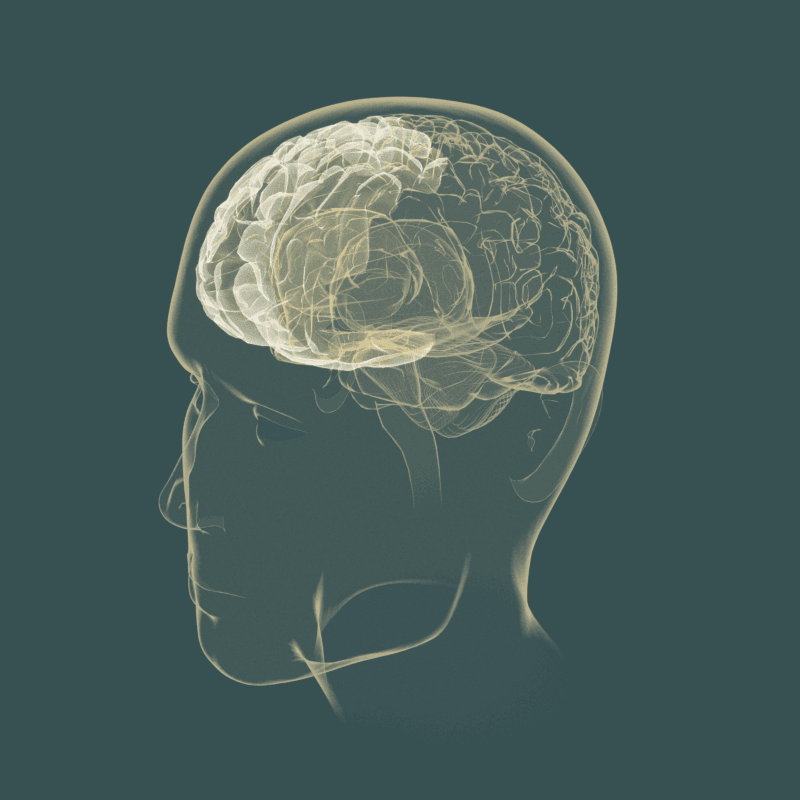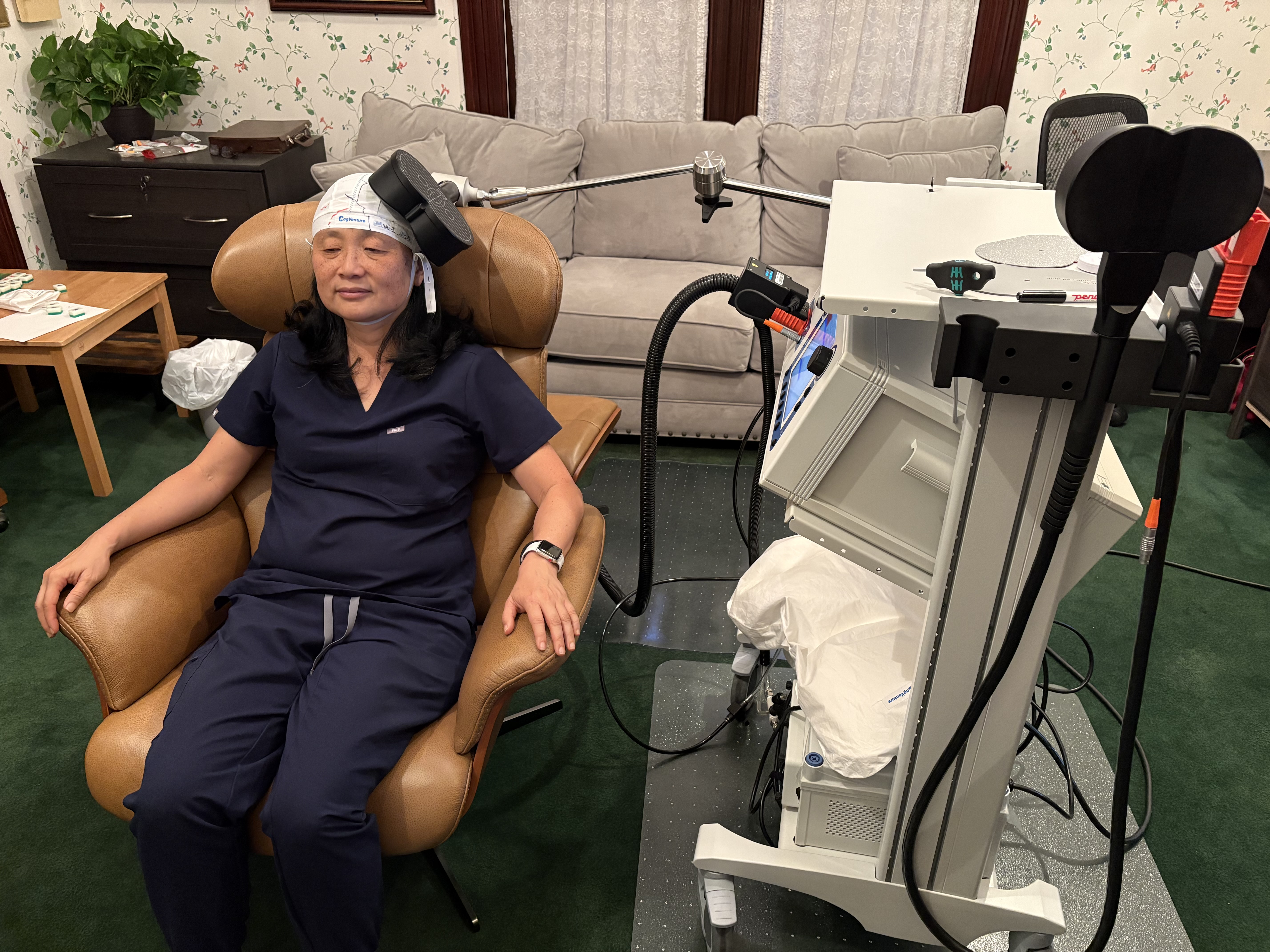PNM: Robust TMS
At Pacific Neuromodulation, we prescribe robust TMS. We employ a multidimensional approach where we target multiple brain circuits, use higher pulse counts and augment with supportive therapies. All the while, we chart patient progress daily so that we can adjust protocols accordingly. This approach yields significantly higher response and remission rates than standard TMS.

What is TMS?
Transcranial magnetic stimulation (TMS) delivers magnetic pulses to specific brain areas to promote neuroplasticity (brain growth and adaptation) and to relieve symptoms of neurospsychiatric disorders. It’s non-invasive and medication free. It’s FDA-approved. It represents the next generation of psychiatric care.
ROBUST TREATMENT PROTOCOLS
Robust treatment protocols
Many community TMS programs deliver treatments that stimulate just one brain region with a standard pulse count which is often underpowered. Yet, medical research shows that for most disorders, the treatment of other areas of the brain can yield effective results. Moreover, higher pulse counts also yield better results. At PNM, our psychiatrist will work with you to develop your own TMS protocol, which may include treating multiple brain areas with higher pulse counts. We also use the faster TBS (theta burst stimulation) instead of traditional rTMS to speed up your TMS treatment. Our team will also recommend supportive therapies such as cognitive therapies, exposures, cognitive training and physical exercises to exploit this time of peak neuroplasticity to shape your brain.

PERSONALIZED CARE
In-Depth Evaluations and Dynamic Treatment Plans
Our psychiatrists will closely examine your symptoms and history and prescribe a protocol specific to you. For example, not all depression is the same. There is anxious depression, post-partum depression, bipolar depression, etc. You could have depression co-morbid with OCD, substance abuse, PTSD or a personality disorder. Our psychiatrist will then prescribe a TMS treatment protocol targeting the specific brain areas for your condition(s). Then, your treatment will be followed daily so your care can be adjusted accordingly. This multidimensional, dynamic approach maximizes your chances for remission. We also work with other mental health professionals to augment the TMS with additional supportive therapies.
Accelerated TMS: Faster response, higher remission
We only employ accelerated TMS protocols where patients often experience symptom relief within days. Traditional TMS protocols typically deliver one session per day, five days a week, over seven weeks. Accelerated TMS compresses that same dose into a much shorter window, often up to ten sessions per day over one to two weeks. Research shows that this intensified approach not only boosts response rates to around 80% compared with 50–70% for standard protocols, but also drives significantly higher remission rates of 70–90%, versus 30–50% under traditional schedules.
~79%
High remission rates demonstrated in studies of accelerated TMS for treatment-resistant depression.
Cole et al., 2022 (SNT RCT)
5-10 Days
Accelerated TMS can condense a full treatment course into as little as 5-10 days, enhancing convenience and accessibility.
Cole et al., 2020 & 2022 (SNT Studies)
Effective
Accelerated TMS has shown efficacy even in patients who previously failed standard TMS courses.
Cole et al., 2020 (SAINT Open Label)
Well Tolerated
Accelerated TMS protocols are generally well-tolerated, with side effect profiles comparable to standard TMS.
Cole et al., 2020 & 2022 (SNT Studies)

CONVENIENT AND EFFECTIVE
Mobile TMS: Treatment Delivered to You
We make it easier to get the full benefits of TMS by bringing treatment directly to you. Traditional protocols require patients to visit a clinic five days a week for seven weeks which can be exhausting and impractical. For an additional fee, Pacific Neuromodulation delivers and sets up a TMS machine in your home, hotel, or facility. A highly trained TMS technician then administers your sessions on‑site, so you can focus on healing without the hassle of daily travel. A psychiatrist will visit you in person at least once and follow-up on Zoom.

VERSATILE TREATMENT OPTIONS
We treat many neuropsychiatric disorders.
We treat a vast array of psychiatric and neurologic disorders including depression, anxious depression, OCD, nicotine cessation and migraines which are FDA-approved, along with additional conditions including anxiety disorders, PTSD, substance abuse, traumatic brain injury, chronic pain and cognitive impairment. Our psychiatrists are open to discussing other indications in the psychiatric and neurologic realms such as autism, negative symptoms of schizophrenia, obesity, personality disorders, and dementia.
We always base our treatments on existing literature.
OUR EXPERT TEAM
The Experts Behind Your Care
Pacific Neuromodulation combines world-class psychiatric expertise with leading specialists in technology, data science, and AI to deliver personalized, cutting-edge care.
Brett D. Shurman, M.D.
University of Pennsylvania, M.D.
UCLA Residency
Board Certified: Psychiatry & Addiction Medicine
20+ Years Clinical Expertise
Benjamin M. Shapiro, M.D.
20+ Years in Practice
Specializes in Anxiety, Bipolar Disorder, Depression
Masahji Stewart
Over 20 years as CTO, Chief Architect, Computer Science Professor & Technology Executive
Wei-I Wang, PhD
University of Chicago (Honors), PhD (Quantitative Methods) UCLA
Applies statistical expertise to analyze clinical data.
FAQ
Frequently Asked Questions
Find answers to common questions about TMS therapy and our approach at Pacific Neuromodulation. Contact us for any further inquiries.
What is Transcranial Magnetic Stimulation (TMS)?
TMS is a non-invasive medical treatment that uses magnetic fields to stimulate specific areas of the brain. It's primarily used for conditions like depression and OCD, especially when other treatments haven't been effective. The stimulation helps regulate brain activity, leading to symptom improvement.
What conditions does Pacific Neuromodulation primarily treat?
Pacific Neuromodulation specializes in treating Depression, Obsessive-Compulsive Disorder (OCD), and Post-Traumatic Stress Disorder (PTSD). We also actively research and develop protocols for other conditions, including anxiety and eating disorders, leveraging our expertise in personalized neuromodulation.
What makes Pacific Neuromodulation's TMS approach unique?
Our approach is deeply personalized. Unlike standard TMS that often uses a one-size-fits-all method, we develop bespoke treatment plans. This involves customized protocols with specific pulse sequences and frequencies, targeting multiple brain locations relevant to your unique condition. We utilize modern technology and insights from machine learning to refine these multi-target strategies for enhanced efficacy.
What is Accelerated TMS?
Accelerated TMS significantly shortens the treatment duration, often condensing a full course into 5-10 days, compared to the 4-6 weeks typical of traditional TMS. Research indicates that accelerated protocols can offer rapid symptom relief and achieve high remission rates, all while maintaining a safety profile comparable to standard TMS.
Is TMS therapy safe and are there side effects?
TMS therapy is generally well-tolerated and considered safe. The most common side effects are mild and temporary, such as a headache or scalp discomfort at the stimulation site, which usually subsides quickly. Serious side effects are rare. We provide earplugs due to the clicking sound of the device. A thorough discussion of all potential benefits and risks will occur during your consultation.
How do I determine if TMS is the right treatment for me?
The first step is an initial consultation with one of our expert psychiatrists. They will conduct a comprehensive evaluation, including your medical history, current symptoms, and treatment goals, to determine if TMS is an appropriate and safe option for your specific situation.